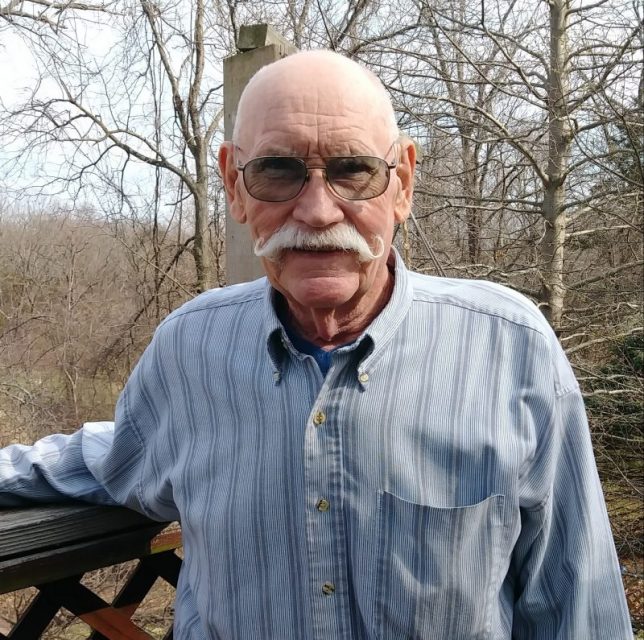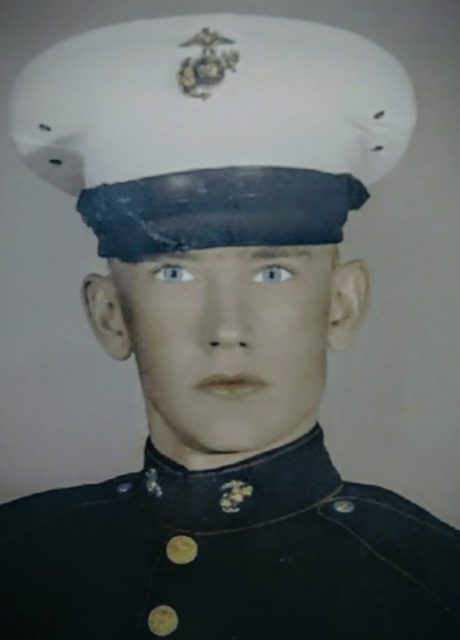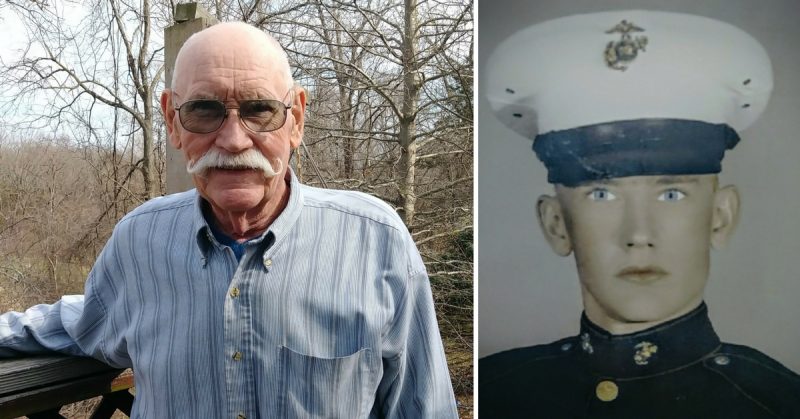War History online proudly presents this Guest Piece from Jeremy P. Ämick, who is a military historian and writes on behalf of the Silver Star Families of America.
Jim Williams is known by many for his years of public service with the Jefferson City Fire Department, local correctional facilities and as a reserve deputy with the Cole County Sheriff’s Department. Prior to this, he explained, his career footing was established during the more than four years he spent on the West Coast and in Okinawa with the Marine Corps.
Graduating from Jefferson City Senior High School in 1961, Williams recalls making a wage of 75 cents an hour working as a stock boy at the Herman’s Department Store. When approached by a friend about enlisting in the Marine Corps, it took little goading to influence his decision.
“Three or four of my buddies from high school had already enlisted and when my friend said, ‘Let’s join,’ I said, ‘OK.’” He added, “When you are making 75 cents an hour, anything is an improvement,” he chuckled.
Enlisting on October 31, 1961 in St. Louis, Williams was on a plane bound for the West Coast less than a month later. He arrived at the Marine Corps Recruit Depot in San Diego where he spent the next several weeks being forged into a Marine in the kiln of intense training and applied discipline.
“After about 12 weeks or so of boot camp, they sent me up to Camp Pendleton (California) for additional training with an infantry training regiment,” he explained. “When that was finished, I got to ride the train back to Jefferson City for a few days of leave.”

When making his return trip to Camp Pendleton in April 1962, Williams said, he and several Marines and Sailors boarded the train in Kansas City. One of the passengers happened to be a young woman from Michigan named Mary, who was traveling to California for her cousin’s wedding.
“We met on the train,” he said, “and she ended up staying in California to work. We stayed in contact, writing back and forth while I was stationed at my various duty assignments.”
When he returned to California, Williams was assigned as an artilleryman. Although he had never received any training on the 155 mm howitzers assigned to his battery, he learned everything he needed to know “on the spot.”
In July 1962, his battery was sent to Okinawa for a 13-month tour of duty at Camp Zukeran (now known as Camp Foster). While there, he continued training as an artilleryman, however, when his father fell ill in early 1963, he was sent back to the United States.
“While my dad was recuperating, they assigned me to the 9th Marine Reserve and Recruitment District in Kansas City so that I wouldn’t use up all of my leave,” Williams said. “I just did a bunch of busy work for them, sorting documents and such, and then came home on the weekends.”
After his father’s health began to improve, the young Marine was sent back to his battery in Okinawa in June 1963. A few weeks later, his battery’s overseas tour was completed and they returned to Camp Pendleton, where Williams was assigned to E Battery, 2nd Battalion of the 11th Marines.
“I was just an ordinary cannoneer still working with the big guns,” he humbly stated. “We continued to do more training … except this time we were working with the smaller 105 mm artillery pieces.”
He continued to visit his girlfriend, Mary, when their frenetic schedules allowed and on November 16, 1963, the couple married in Hollywood, California.

Williams was soon promoted to the rank of lance corporal and transitioned from serving as a cannoneer to driving a truck that hauled the ammo in support of his battery’s firing missions. While he was participating in a training exercise in Twentynine Palms, California, his wife gave birth to their first son.
“Our son was born premature and stayed in the hospital for 41 days,” said Williams. “My total out-of-pocket cost for the both his and my wife’s hospital stay was $78.00.” Pausing he added, “Were it not for the benefit of being in the military, I couldn’t imagine what a huge expense that would have been.”
In the spring of 1965, many of the Marines from his battery were being sent to help fight the war in Vietnam; however, since he had less than six months remaining in his enlistment, Williams was transferred to work in the brig (military jail) for the remainder of his commitment.
For the next several months, he guarded prisoners and performed the duties associated with running a jail, but in August 1965, President Lyndon Johnson extended by four months the enlistment of all Marine and Naval forces, pushing Williams’ discharge back to March 1966.
“When I finally got out of the service, we decided to settle in Jefferson City,” said Williams. “I worked for a little while at a gravel plant in Wardsville and then for a local vending machine company until I was hired by the Jefferson City Fire Department in June 1967. I retired as assistant chief in 1994 after 27 years with them.”
The veteran was later employed by the state, performed voluntary service as a reserve deputy with the Cole County Sheriff’s Department and was a crossing guard at Thorpe Gordon School, but it is the four years he spent in the Marine Corps from which he has reaped the greatest experience.
“I have to say that the discipline that I received from my Marine Corps training was very important as well. With it, you knew what had to be done, when you had to do it and how to get it done.”
He concluded, “And looking back, I know that I did my part even though I never served in a combat zone. I was prepared to fight and came to realize that for every person that is serving in combat, there are scores more needed to support these warfighters indirectly to keep all of the bases going and supplies flowing.”
